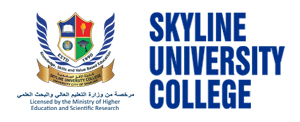Public/Private sector banks
To work in a private or a public sector banks one should first clear Bank PO exams for the entry level jobs. For higher level jobs such as that of a manager usually requires a higher degree such as that of a Chartered Account. Banking jobs offer stable and fairly remunerative jobs to individuals with good mathematical and management skills.
Investment Banking/Merchant Banking
An Investment banker is someone who is a specialized professional trained in fund management. He/she is also trained in risk assessment of securities, bonds and other tradable products. A strong interest in numbers and reading patterns is a must to be successful as an investment banker. A qualified professional can either work individually or can work in an investment bank such as JP Morgan and others. It is one of the most remunerative career options in recent times.
Credit Analyst
A credit analyst is a trained professional who analyses, risk in various financial products such as securities, bonds, loans, etc. These professionals not only have the knowledge to predict markets but bigger national economies as well. A good trained individual can work with banks or brokerage firms. Usually a degree in finance and a higher degree in actuarial science is sufficient to enter the profession.
| Stream | Graduation | After Graduation | |
|---|---|---|---|
|
Path 1
|
Clear Class XII in any stream | BA/B.Com | Bank PO Exam |
|
Path 2
|
Commerce | BA/B.Com/CA/ICWAI | SBI/RBI exam |
|
Path 3
|
Commerce | B.Com/B.Eco | MBA in finance |
|
Path 4
|
Commerce | B.Com/B.Eco | Certification in Investment Banking |
Important Facts
- For Bank PO exams any graduate degree makes one eligible to take the exam. But for other courses, commerce with math in 12th standard is a must.
- Although Bank PO exams do not have a requirement for math but one should have high proficiency in manipulating numbers and understanding patterns to be successful in banking related services.
[/td_block_text_with_title][td_block_text_with_title custom_title=”WORK DESCRIPTION” header_color=”#dd3333″ separator=”” tdc_css=””]
- Help in the financial requirements of individuals and businesses and provide advice and financial services
- Analyze applicants financial status, credit, and property evaluations to determine feasibility of granting loans
- Obtain and compile copies of loan applicants’ credit histories, corporate financial statements, and other financial information
- Meet applicants to obtain information for loan applications and to answer questions on the process
- Explain to customers the different types of loans and credit options that are available, as well as the terms of those services
- Review loan agreements to ensure that they are complete and accurate according to policy
- Help customers manage their funds; answer quaries regarding the bank’s products and services; troubleshoot problems related to customers, finances and management
[/td_block_text_with_title]

[formcraft id=’72’]
